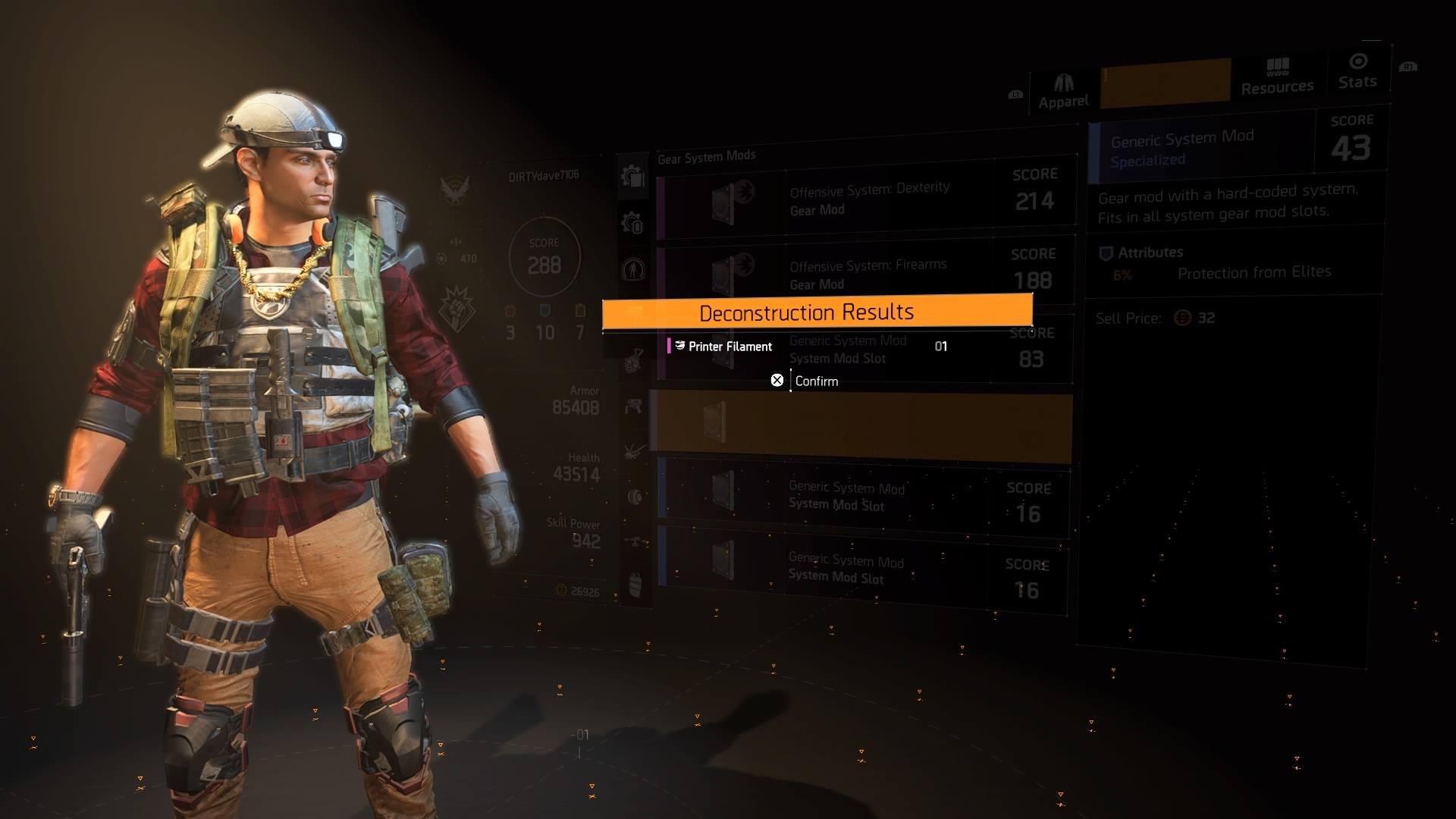There’s a lot to crafting in The Division 2, especially when trying to retrieve exotic weapons and mods.
One crafting item that is essential for completing this task is printer filament — an element used for upgrading the crafting bench and also used in crafting mods. It’s not found by looting war-torn Washington D.C.
Well, ok: that’s not entirely true. Let’s clear that up.
If you’ve been playing The Division 2 for any amount of time, you’ll know that looting is a huge part of the endgame: leveling, upgrading, etc. Although you can’t find printer filament out in the wild, there are certain objects out there that will deconstruct into the much-needed component.
That certain object is a mod. Both gear mods and skill mods will do the trick.
Just like any piece of equipment, mods can be deconstructed and turned to printer filament.
Instead of selling your mods to shop owners and getting semi-decent cash out of them, why not just turn into something more useful?
This is especially true for later on in The Division 2, when the game turns to World Tiers rather than specific levels. It’s at that point that you’ll want to find as much exotic equipment and as many mods as possible.
How to Deconstruct Mods in Printer Filament
To deconstruct your mods, follow these steps:
- Go into your inventory
- Go to the bottom right of the screen
- Choose the option for mods
There, you’ll find a list of your inventory, including mods you won’t need or want. Of course, don’t deconstruct mods you want to use; make sure you’re judging which are the best for your character build before destroying them for good.
As you hover over a mod, you’ll see the option to deconstruct.
However, there’s something to keep in mind: crafting mods doesn’t guarantee you a mod that you’ll want.
Deconstructing mods a pretty random process, so farming as much printer filament as possible is the game here. This is also true for upgrading the crafting bench, which will eventually produce exotic materials, but you gotta’ work for it.
Another thing to think about is that when deconstructing mods, always keep an eye on the score found in the top right corner of the item description. The gear score total will have great value, especially once you enter into World Tier territory, which happens after taking out the enemy Strongholds and finishing the main missions.
Best Ways to Find Mods in The Division 2
Now the question is: where do you get mods?
Well, there’s a few places to start:
1. Shop-owners
2. Defeating higher enemy types
3. Mission Rewards
4. Crafting
5. Looting
Now, of all of these options, shops are going to be the easiest to acquire, but this isn’t the most productive way to farm them as you’ll be spending your hard-earned cash just for the sake of printer filament.
The next most common method is crafting, which requires a certain number of components to do, but those come up quite often in the wild through general looting.
This is the main reason that printer filament is one of the most crucial pieces of crafting pieces: because the higher the crafting bench, the better the mods.
The Right Perk
Lastly, the best perk to have for farming is the Detection 1 perk, which allows for better loot detection after donating enough resources to a control point.
Now, this perk only lasts a short period of time, but it’s still worth using for the sake of farming materials that lead to crafting mods.
—
For more on The Division 2, be sure to check head over to our guides hub. And be sure to check out our review of the game, where we said that The Division 2 is the “best looter shooter in years.”









Published: Apr 11, 2019 09:04 pm